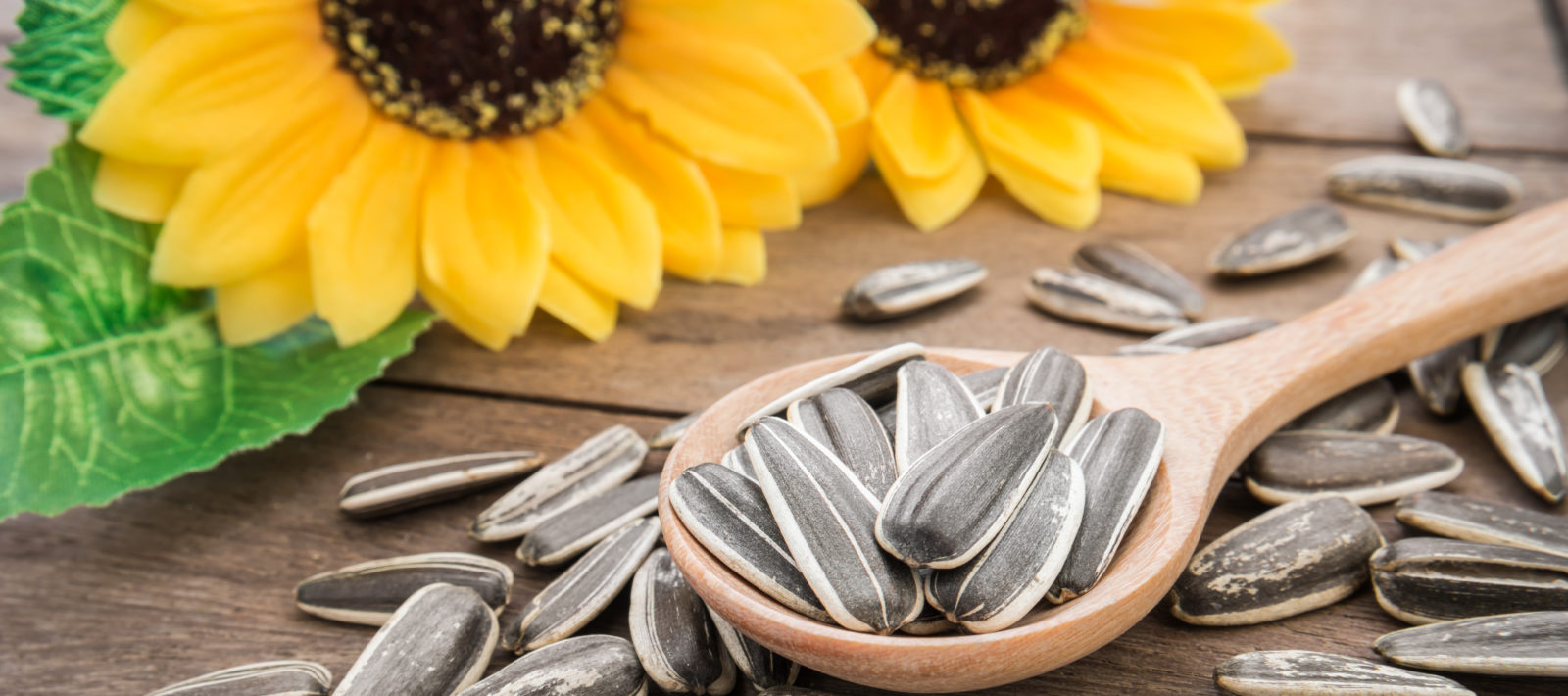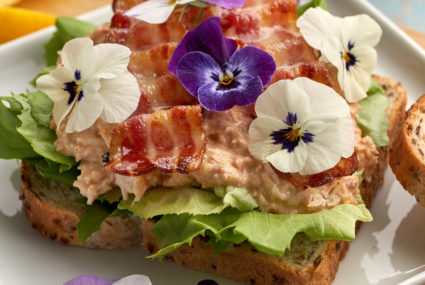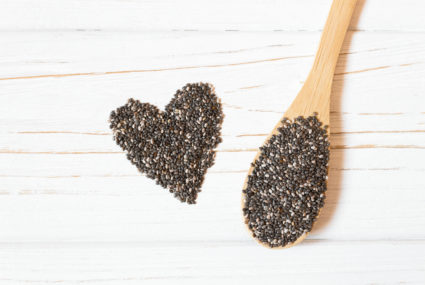Seeds are tiny yet they contain all the nutrients and energy needed to grow beautiful plants bursting with leaves, flowers and berries. It’s no surprise that these tiny powerhouses of nutrition are also jam-packed with the things we need to help maintain our health, vitality and happiness!
While every seed has a slightly different nutritional profile, they all share some similar properties. In this blog post, we’ll look at the wonderful benefits seeds can bring to our diets and take a closer look at some of our favourites.
1. Seeds are full of important heart-healthy fats
All seeds contain varying amounts of monounsaturated fats which increase ‘good’ HDL cholesterol in our body, alongside polyunsaturated fats which help lower the bad ‘LDL’ cholesterol.
Eating more healthy fats like seeds in place of unhealthy saturated fats is key to protecting against heart disease.
Fats are also essential for helping us absorb fat-soluble vitamins—K, D, A and E—another reason to start adding seeds to your diet!
2. They are rich in essential fatty acids
Essential fatty acids like omega-3 and omega-6 cannot be made by the body – so you have to get them from food.
Omega-3 has been linked to a healthier heart[1], joints[2] and brain[3], as well as helping ease skin conditions[4] such as eczema and psoriasis. Omega-6 helps keep blood sugar in check[5] by improving the body’s sensitivity to insulin.
It’s important to have a balance of both omegas, but unfortunately most of us don’t eat enough omega-3. Eating more seeds is an ideal way to change this!
Brown linseeds (like those found in Vogel’s bread) are one of the best plant-based sources of omega-3 available. We soak all our seeds for 12 hours before baking to make sure all of the goodness inside the shell can be absorbed by the body.
3. Seeds are rich in protein
For something so small, seeds provide a surprisingly large amount of protein!
For anyone on a vegetarian or vegan diet, it’s important to eat a range of different plant-based protein sources to get the full range of amino acids needed to form a complete protein. Snacking on a range of seeds throughout the week is a super simple way to do this, alongside other protein sources like legumes and grains.
Some seeds (including chia seeds and hemp seeds) even contain a complete source of protein. Hemp seeds contain around 11g of protein per serving!
4. Seeds are great sources of fibre
All seeds are rich in dietary fibre, helping keep your digestive system running smoothly and maintain a healthy gut, which is important for supporting your immune system.
Most of us don’t get enough fibre but adding a small serving of seeds to your diet each day can really help! Just one serving of chia seeds contains around 6g of the recommended 30g of fibre per day. In second place is linseeds giving 5g and poppy seeds with around 4g.
5. They are packed with vitamins and minerals
When you think about how tall a sunflower can grow, you can imagine how nutrient-dense a tiny seed must be! All seeds contain vitamins A, B, C and E along with the minerals calcium, magnesium, potassium, zinc, iron, selenium and manganese in varying amounts. These are all important for maintaining a healthy body.
Sunflower seeds in particular are an amazing source of B Vitamins including folate, which helps to promote a healthy immune system and is important for people who are pregnant.
Pumpkin seeds provide nearly half the recommended dosage of magnesium in just 30g. They are also a rich source of zinc, which is vital for eye and skin health, cell growth and immunity.
Sesame seeds are a fantastic source of calcium for anyone on a dairy-free diet.
6. Seeds can help you manage your weight
Seeds are naturally a low GI food – they are an excellent source of slow-release energy, which helps to keep blood sugar levels stable and you feel fuller for longer.
7. They may reduce inflammation and help protect against disease
Studies have found that consuming seeds five or more times per week was associated with lower levels of inflammation—which may be why eating seeds is also related to a reduced risk of several chronic diseases.
Add seeds to your diet for a great way to give your immune system a helping hand!
8. They’re versatile and delicious!
Seeds add a delicious, nutty crunch to all sorts of foods. You can sprinkle them onto your breakfast or add to muffins and bread. In fact, vegans can make an easy egg replacement when baking by mixing one tablespoon of linseeds or chia seeds with two tablespoons of water.
You don’t need to eat very many seeds to reap the benefits. A typical serving size is around one tablespoon (7 grams) and you can easily eat them as a snack. Roast them with your favourite seasoning for a delicious movie-night snack or keep a jar on your desk for a quick energy boost!
Our Vogel’s bread is packed full of nutrient-dense seeds, making it easy to get a healthy serving of seeds into your daily diet.
[1] https://www.heartuk.org.uk/low-cholesterol-foods/omega-3-fats
[2] http://blog.arthritis.org/living-with-arthritis/omega-3-fatty-acids-arthritis/
[3] https://www.heart.org/en/news/2019/11/12/omega-3-may-boost-brain-health-in-people-with-a-common-heart-disease
[4] https://journals.sagepub.com/doi/abs/10.1177/1203475420929925
[5] https://www.health.harvard.edu/newsletter_article/no-need-to-avoid-healthy-omega-6-fats





